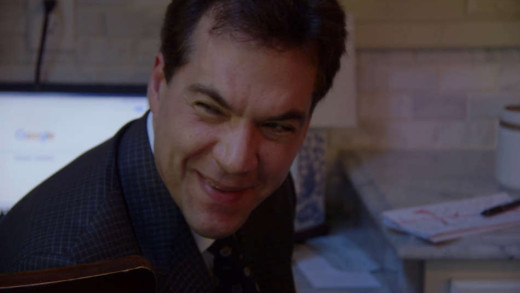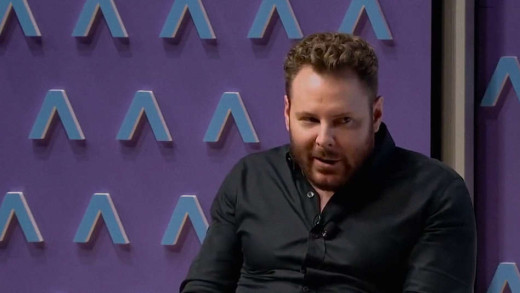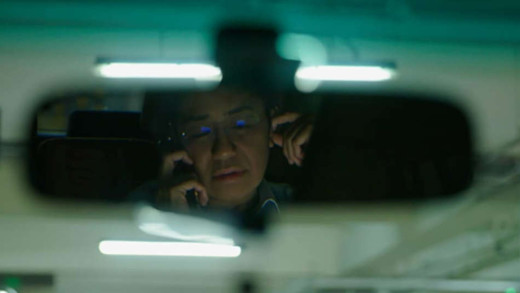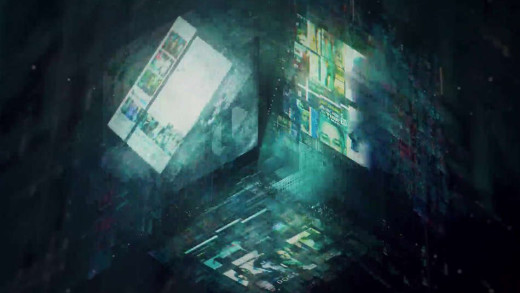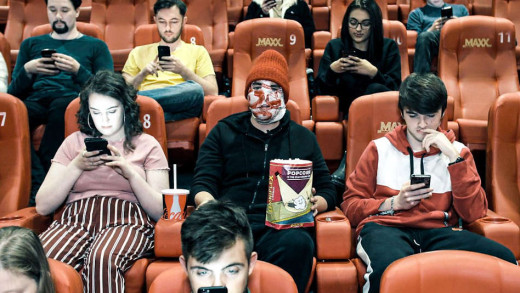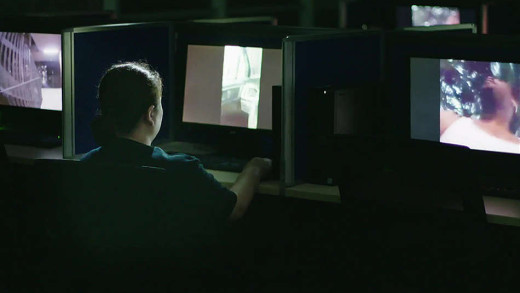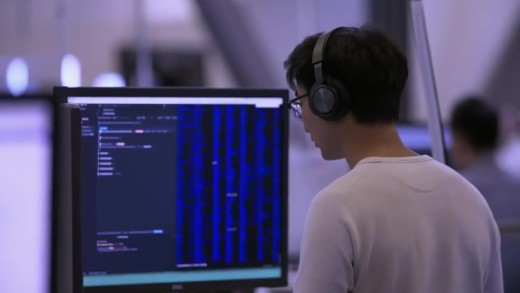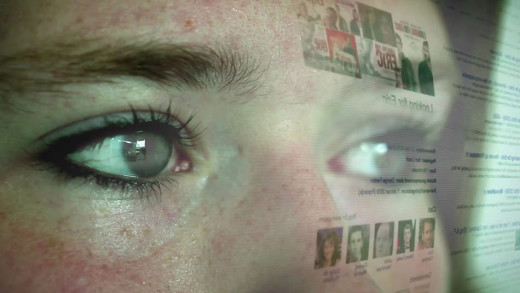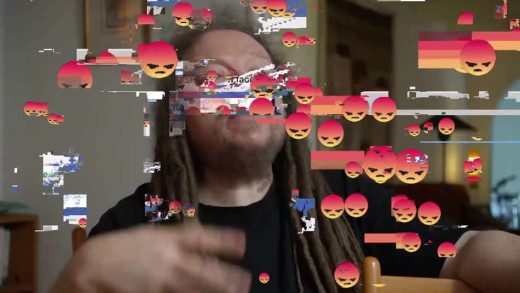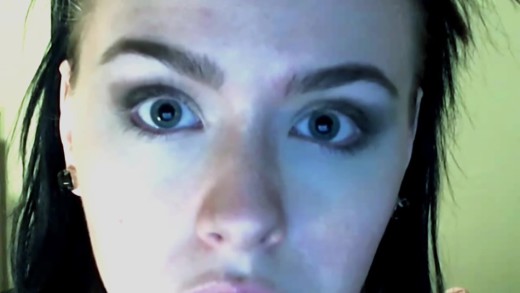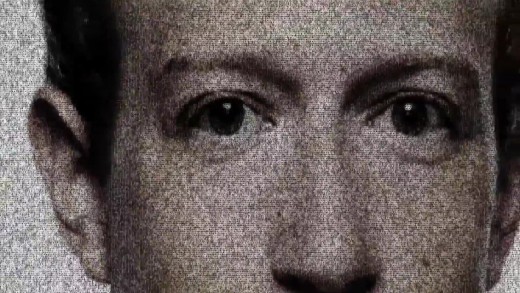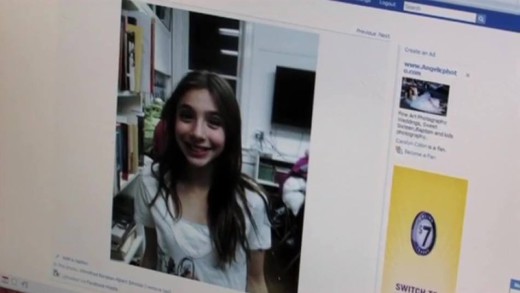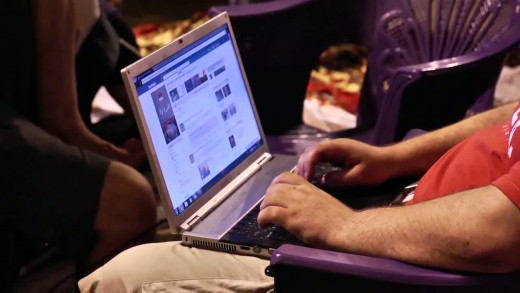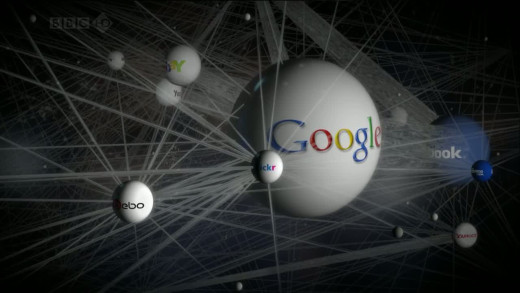Mega-corporations like Apple, Amazon, Google and Facebook are incredibly powerful, and their growth shows no signs of slowing down. The pandemic has only them more influential. Experts have long watched as they breach antitrust laws, while also receiving special treatment when it comes to paying low wages, avoiding taxes, flouting laws, and even making their own laws through extensive lobbying and buying elections. The line between the state and mega-corporations is growing even foggier. Some states believe there is simply no way around these giants. Corporate power would have us believe that it is here to stay. Market driven surveillance undermines our sovereignty and thus the very foundation of Western democracies. There is a storm brewing both in the United States and Europe. But the corporations are ready for it. Will they continue on this dangerous trajectory, or is there some chance we can still rein them in?
After Truth
After Truth is about the growing proliferation of modern disinformation, where almost anybody with a computer and social media access can have a powerful platform without oversight, influencing the information experiences of billions of people. The melting pot is catalysed by Facebook, Twitter, Reddit, 4chan, and other websites that spread disinformation to huge audiences with a profit incentive, competing to capture everyone's attention. After Truth asks the question about where all this is heading, by exemplifying events such as Jade Helm, Seth Rich, and Pizzagate, but also profiling some major and minor personalities involved in spreading disinformation, conspiracy theories, fear, and uncertainty. With an empire in collapse, and physical reality being increasingly replaced by popular postmodern theories of "there is only subjective truth," this film not only presents the challenge of returning to what is real, but the task of stopping disinformation from continuing to divide, confuse, distract, and destroy.
The Social Dilemma brings together former product directors and designers of Facebook, Google, Instagram, Pintrest, Twitter, and so on, to reflect on their creations and face questions about the age of addiction, information manipulation, and algorithmic social control they've ushered in. The creators speak openly about how they themselves took part in this co-optation of society, either naively or with malignant indifference, by designing websites in such a way to influence and manipulate billions of people for corporate interests by using deep psychological and addictive triggers in the human mind. Detailed explanations about how this can play out in the real world are illustrated through dramatisations, which are also expanded upon by experts in psychology, technology, and social studies. The result is a sobering call for emergency damage control, to undo the massive harm that technology companies have unleashed on society unrestrained for the past several decades, at a time of rapid social unravelling.
A Thousand Cuts is a timely film about modern-day journalism and freedom of the press inside the Philippines where the political space has been usurped by social media disinformation campaigns, celebrity propaganda spectacle, and direct organised political violence. The film comes as the world awaits the verdict of the case against of Maria Ressa, the CEO and founder of the news network Rappler, who has been vocal about holding president Rodrigo Duterte accountable for his government's much-criticised and violent "war on drugs." In what is a salient trend of our time, A Thousand Cuts examines the disinformation campaigns and the crackdown on the media, while journalists Maria Ressa and her team place the tools of their trade--and their freedom--on the line in defence of truth and democracy.
The Great Hack is an inside account of the company Cambridge Analytica, which used vast amounts of personal data scraped from portals such as Facebook to manipulate elections throughout India, Kenya, Malta, Mexico, the United Kingdom and United States over the past decade. The company, owned by SCL Group--a British firm that has a background in military disinformation campaigns and psychological warfare--came to public attention after the Brexit campaign in the UK, and soon after, the election of Donald Trump in the United States, both closely worked on by Cambridge Analytica and its billionaire backer, Robert Mercer. This resulted in inquires and investigations into both Facebook and Cambridge Analytica, but the company liquidated, along with its internal documents. Two former employees instead step forward to offer an inside account into the dark world of data mining and personalised propagandising, having some regret for what they have done. The film tracks these characters, as Cambridge Analytica lives on as Emerdata Limited, in the same London office. The Great Hack exemplifies big questions about democracy in the age of targeted information manipulation via the screen, and just how much power over our awareness has been ceded to giant corporations.
As one half of the satirical duo, The Rubber Bandits, Blindboy is renown for wearing a plastic bag on his head while dishing out sharp social commentary. In this series, using his unique mix of irreverent commentary, a band of undercover reporters, and playful humour, Blindboy sets out to investigate some of the most important issues of our time.
How do online giants such as Facebook and Google deal with problematic content posted to their platforms every minute? They outsource the act of "digital cleaning" to teams of people paid a pittance in countries such as the Philippines, to act as content moderators. It's these hidden low-paid workers, in giant click farms, that spend long shifts removing posts and deleting accounts. So how do their decisions influence what the billions of people using social media all around the world see and think? What are the policies they are told to enforce? Are the cleaners part of the online world of clever hoaxes and fake news, or are they on the frontline of social media spectacle and furor?
The Facebook Dilemma aims to open an in-depth investigation into the impact Facebook has had on privacy and democracy in the United States and throughout the world, by revealing how the decisions made by the company as it sought increased wealth and new users, transformed it into a vast surveillance machine, a media company, and a 'hidden hand' in elections and political discourse. Drawing on original interviews from those inside the company, this two part series catalogues some of the ignored warning signs, both inside and outside the company, of Facebook's negative impact, growing from Zuckerberg's dorm-room project and into a powerful global empire.
Tracing the Internet's history as a publicly-funded government project in the 1960s, to its full-scale commercialisation today, Digital Disconnect shows how the Internet's so-called "democratising potential" has been radically compromised by the logic of capitalism, and the unaccountable power of a handful of telecom and tech monopolies. Based on the acclaimed book by media scholar Robert McChesney, the film examines the ongoing attack on the concept of net neutrality by telecom monopolies such as Comcast and Verizon, explores how internet giants like Facebook and Google have amassed huge profits by surreptitiously collecting our personal data and selling it to advertisers, and shows how these monopolies have routinely colluded with the national security state to advance covert mass surveillance programs. We also see how the rise of social media as a leading information source is working to isolate people into ideological information bubbles and elevate propaganda at the expense of real journalism. But while most debates about the Internet focus on issues like the personal impact of Internet-addiction or the rampant data-mining practices of companies like Facebook, Digital Disconnect digs deeper to show how capitalism itself turns the Internet against democracy. The result is an indispensable resource for helping viewers make sense of a technological revolution that has radically transformed virtually aspect of human communication.
Fuelled by popular personalities on Instagram, YouTube and Snapchat, cosmetic surgery is pushing further into the mainstream. Huge numbers of people, predominantly young women, are choosing to alter their appearance forever as though it's as simple as buying a new set of clothes. Social-media "influencers" get free procedures in exchange for promoting certain doctors or agencies or products to their audiences. Going on the numbers alone, audiences seem to respond to this blatantly cacophonous advertising, following their social media stars closely, and taking out huge personal loans to get surgery and "keep up with the Kardashians." Doctors offering the surgery are even becoming media stars themselves, and it's redefining the meaning of doctor/patient relations. Underpinning this entire industry, is a business model of targeting women who can barely afford procedures by selling the dream of a "new you." Social-media laps it up, and the cycle repeats. But as this investigation shows, when things go wrong, the physical and financial costs are devastating. Real doctors who are left to pick up the pieces, are warning that the booming industry is creating a dangerous legacy, and not just to the concept of beauty.
There are billions of people increasingly glued to 'smartphones' and consumed by the seemingly endless spectacle of 'social media.' But why? Reporter Hilary Andersson seeks to answer this question by tracking down insiders who reveal how social-media companies have deliberately developed habit-forming technology to get people addicted. Former Facebook manager, Sandy Parakilas, tells us the "goal is to addict you and then sell your time." Likewise, Leah Pearlman, the co-creator of the renowned 'Like' button, warns of the dangers of social-media addiction. Through these voices, and many others, Andersson shows how behavioural science is profoundly used by tech companies to keep people endlessly checking their phones, to the end of huge profits.
This culture runs on algorithms on a scale never before realised. Whether you get a job or a mortgage or insurance or healthcare, how you get from A to B, how huge fortunes are made or whom is driven into poverty, decisions on whom is sent to or released from prison, whom is voted for in manipulated elections--the reach of algorithms has captured so much of the major decisions of our lives, all in complete obscurity, inscrutable. So what are the implications of this? What sort of 'decisions' do machines make, to which we've come to regard as infallible and impartial, accurate and precise? Algorithms Rule Us All speaks to data scientists and programmers themselves to answer the question of what they think is unfolding with the so-called Big-Data society and how we're continuing to hand over our lives and societies to the whim of machines that are driven by rapacious profit-driven companies, for the goal of commodification of everything. What are the implications for human autonomy, society, democracy?
We live in a world of screens. The average adult spends the majority of their waking hours in front of some sort of screen or device. We're enthralled, we're addicted to these machines. How did we get here? Who benefits? What are the cumulative impacts on people, society and the environment? What may come next if this culture is left unchecked, to its end trajectory, and is that what we want? Stare Into The Lights My Pretties investigates these questions with an urge to return to the real physical world, to form a critical view of technological escalation driven rapacious and pervasive corporate interest. Covering themes of addiction, privacy, surveillance, information manipulation, behaviour modification and social control, the film lays the foundations as to why we may feel like we're sleeprunning into some dystopian nightmare with the machines at the helm. Because we are, if we don't seriously avert our eyes to stop this culture from destroying what is left of the real world.
Facebook is an enormously powerful corporation, harnessing both the self-disclosed and gleaned personal data of over 2 billion people. Its user-base is larger than the population of any country. The company is all pervasive online, tracking and profiling users and non-users alike. Cracking the Code looks at the insides of this giant machine and how Facebook turns your thoughts and behaviours into profits--whether you like it or not. And it's not just a one-way transaction either. Cracking the Code also explains how Facebook uses vast troves of web data to manipulate the way you think and feel, as well as act--all in the sole interests of Facebook, masquerading as "community." What are the social implications of this--when one company basically controls the insights and experiences of the entire online world, with extremely personalised and targeted social and behavioural engineering on a scale never before seen?
The United States of Secrets chronologically accounts the Bush administration's embrace of illegal and widespread dragnet surveillance and eavesdropping programmes, along with the Obama administration's decision to not only continue them, but to dramatically expand them—despite denials and promises to the contrary. By weaving narratives by those who sought to blow the whistle on these programmes over the decades—culminating with Edward Snowden's unprecedented dump of insider documents in 2013—we see how and why those inside the NSA and other government agencies came to act; what actions were effective, and what role the mainstream media had and continues to have in keeping such secret projects alive and untouchable in the name of 'national security.'
Sexy Baby
An ex-pornstar, a 12 year old girl, and a 22 year old who yearns for the 'normal' genitals as seen in porn movies, are just some of whom are chronicled in Sexy Baby to draw together how the current relentless culture of pornography, social media and popular culture are deeply and profoundly affecting the lives women and girls. Based on intimate and candid conversations with kids in middle school classrooms, suburban shopping malls, nightclubs, college dorms, and high school house parties, the film chronicles trends among small town and big city kids--the pervasive culture affects everyone, everywhere. Most youngsters know someone who has emailed or texted a naked photo of themselves. Many kids have accidentally or intentionally had their first introduction to sex be via hardcore pornography online. Facebook has created an arena where kids compete to be "liked" and constantly worry about what image to portray. Much of what was once private is now made public. The list goes on. Sexy Baby is a powerful indictment of the Internet age and the hyper-sexualised culture affecting women and girls everywhere, as well as an insight into the struggle of parents navigating this new culture, wanting what is best for their kids and the generations to come.
Centred around the concept of open computer networks that contradictorily end up running closed corporate-controlled communication portals like Facebook and Twitter, Free The Network follows two young men who camp out at Zuccotti Park building wireless access points to connect their devices as part of the 'Occupy movement.' Through interviews along the way, Free The Network examines the current state of the Internet in the midst of the protest, and shows how the myth of the 'democratisation of technology,' along with the widespread emergence of clicktivism, is a flawed framework for driving social and political change...
20 years on from the invention of the World Wide Web, The Virtual Revolution explores how the Internet is reshaping almost every aspect of our lives. But what is really going on behind this reshaping? The inventor of the Web, Tim Berners-Lee, believed his invention would remain an open frontier that nobody could own, and that it would take power from the few and give it to the many. So how do these utopian claims stand up to today?

